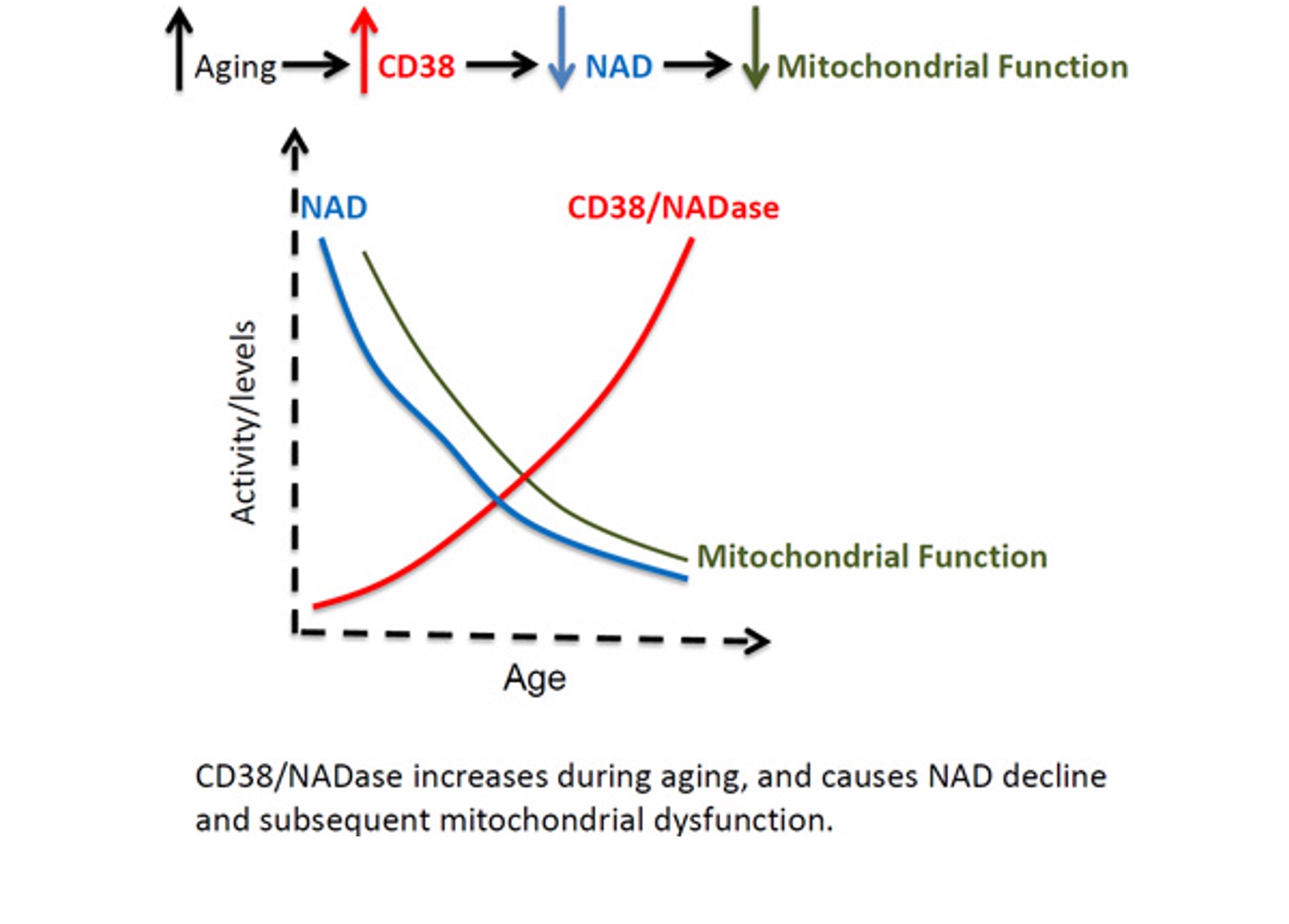Key Points:
- Apigenin is a naturally occurring molecule found most abundantly in chamomile.
- Clinical studies show that chamomile extract alleviates anxiety and depression, and improves the sleep of some populations.
- Animal studies demonstrate that apigenin raises NAD+ levels, which is known to have many anti-aging effects.
In our fast-paced world, getting a good night’s sleep can be hard. A new survey showed that about 40 million (12%) Americans suffer from insomnia. Those with insomnia have difficulty falling or staying asleep and/or regularly wake up earlier than desired. This lack of adequate rest leads to daytime fatigue, depression, and anxiety. Moreover, insomnia is associated with increased rates of dementia, suggesting that years of disturbed sleep could invoke rapid brain aging.
While various factors influence sleep quality, certain natural compounds may help promote better sleep. The same compounds may even delay the rate of aging by improving cellular health. One such compound is apigenin, a naturally occurring flavonoid found in many fruits and vegetables. This article explores how apigenin contributes to improved sleep and targets the underlying drivers of biological aging.
What is Apigenin?
Apigenin is a bioactive flavonoid predominantly found in plants such as chamomile, parsley, celery, and some other fruits and vegetables. It is well-known for its anti-inflammatory, antioxidant, and anti-carcinogenic properties. However, its potential benefits in improving sleep quality are gaining attention due to its calming effects on the nervous system. Furthermore, its impact on cellular aging has placed it among one of the most promising anti-aging supplements.
Evidence for Apigenin’s Sleep-Enhancing Effects
Apigenin affects multiple biological processes thought to support healthy sleep. For example, apigenin has been shown to reduce oxidative stress in flies with induced dementia. Additionally, in rodents, apigenin reduces stress hormone levels and increases the neurotransmitter serotonin, which promotes sleep in humans. However, while apigenin is linked to such sleep biomarkers, very little research has explored how apigenin causally regulates sleep.
Furthermore, clinical studies directly assessing apigenin’s effects are limited. However, a few clinical trials have tested the effect of chamomile extract, which contains about 1% apigenin. In patients with insomnia, 540 mg of chamomile extract trended toward improving daytime function, but this was not significant. Additionally, drinking chamomile tea was shown to alleviate postpartum depression and sleep quality problems in women.
Perhaps more promising is the effect of chamomile extract on anxiety and depression. In individuals with generalized anxiety disorder, 1500 mg of chamomile extract reduced anxiety symptoms and 220-1100 mg helped to alleviate depression. While sleep was not directly measured in these studies, mood is known to affect sleep quality, and reducing anxiety and depression may improve sleep.
Apigenin’s Anti-Aging Effects
Poor sleep is linked to accelerated aging and an increased risk of premature death. In turn, aging is linked to poor sleep quality. Hence, improving one or the other may benefit both. The anti-aging properties of apigenin have been demonstrated by extending the lifespan of various animal models. Furthermore, apigenin increases NAD+ (nicotinamide adenine dinucleotide) levels, which decline with age and may contribute to multiple age-related diseases, including heart and neurodegenerative disease. However, human studies are necessary to determine lifespan-extending effects.
One reason NAD+ declines with age is that it is consumed by various enzymes that repair our cells. As we age, our cells accumulate damage, and these enzymes (e.g., sirtuins) repair the damage. However, one NAD+-consuming enzyme called CD38 does not contribute to repairing cells and may be the primary reason for NAD+’s decline with age. If this is the case, then blocking the activity of CD38 could alleviate some aspects of rapid cellular aging.

Among other functions, apigenin has been shown to inhibit CD38, preventing CD38 from devouring NAD+ for fuel. In this way, apigenin boosts NAD+ levels, similar to what NAD+ precursors like NR (nicotinamide riboside) and nicotinamide mononucleotide (NMN) do. Nevertheless, clinical studies are needed to determine how apigenin affects humans with respect to aging.
Supplementing with Apigenin
Apigenin may offer an effective way to improve sleep quality by reducing anxiety. It may also counteract the biological ravages of aging by boosting NAD+ levels. However, diet and exercise can also reduce anxiety and depression, improve sleep quality, and boost NAD+ levels. Thus, focusing on eating well and exercising consistently is recommended.
With that being said, “apigenin is considered safe, even at high doses, and no toxicity has been reported. Nonetheless, at high doses, it can trigger muscle relaxation and sedation,” according to scientists. Considering that the most common recommended dosage for apigenin supplements — 50 mg — is relatively high compared to what is found in chamomile extract, a sedative effect should be expected.
Ultimately, long-term clinical trials testing the effect of apigenin at various dosages, including 50 mg, on sleep and aging will help verify the safety of this supplement. It is possible that a lower or higher dose may be needed depending on one’s physical condition and desired outcome.